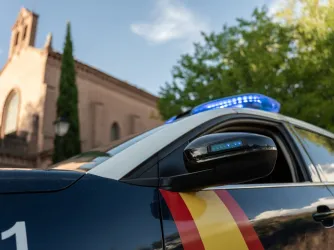Table of Contents
From dignity to deliberation: Reconciling the tensions between free speech and inclusion

FIRE summer intern Dylynn Lasky (right) and Bobby Ramkissoon (left), who held a FIRE summer internship in 2022, attend a meeting of the free speech group they founded, The John Stuart Mill Forum.
Dylynn Lasky is a rising senior at the College of Wooster and a FIRE summer intern.
On the afternoon of Jan. 13, 2018, the president of the College of Wooster informed students and faculty that a senior student had posted offensive memes in a private Facebook group chat. Members of the Wooster community and then-President Sarah Bolton described the posts as “filled with hateful and explicitly racist language and arguments.”
The college reported the posts to the Wooster Police Department, initiated its own investigation, and removed the student from campus.
While the investigation was underway, over 250 students staged a 10-hour-long sit-in on campus and announced a list of demands for the administration to address. The demands included immediate expulsion of the student; budget allocations to the Center for Diversity, Equity, and Inclusion; the creation of more effective reporting mechanisms for bias-related harm; and the implementation of mandated cultural competency training for students and faculty. Some students were frustrated by the college’s lack of urgency in disciplining the student for causing harm, while others recognized the controversy as an opportunity to create clearer free speech policies.
This incident reflects a dominant dynamic of today’s campus controversies: the perceived conflict between free speech and inclusion. These tensions would come to define the College of Wooster’s free speech statement.
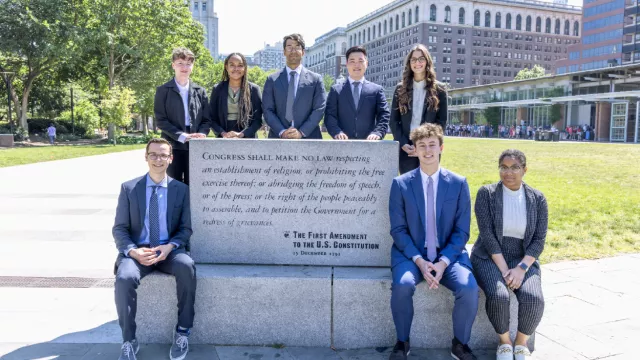
FIRE’s 2023 interns talk free speech, First Amendment cases, and FIRE
Each year, FIRE welcomes a cohort of undergraduate interns into its Philadelphia office for its summer intern program.
One semester before this incident, President Bolton convened a group of campus leaders to be a part of the Freedom of Expression and Inquiry Taskforce. The task force aimed to develop and articulate principles and norms that govern free expression at the college. In the wake of the Jan. 13 incident, the new statement attempted to balance free speech and inclusion by protecting the expression of students only insofar as it does not inflict “dignitary harm.”
The term “dignitary harm” comes from Sigal Ben-Porath, a professor of education, philosophy, and political science at the University of Pennsylvania. In her book, “Free Speech on Campus,” Ben-Porath, like many scholars, laments a lack of attention toward reconciling free speech and inclusion as mutually reinforcing values. While she identifies a real issue, her approach to resolving it, unfortunately, undermines the goal.
Ben-Porath claims that speech can inflict “dignitary harm” on members of already vulnerable groups if it compromises their status as equal members of a community, or threatens their “dignitary safety.”
To be sure, campus safety is within a college’s purview. But using “dignity” as the standard for determining permissible speech presents problems, both practically and in principle.
Dignity, like all concepts, possesses a degree of vagueness because of its long and often difficult-to-trace history: It is a lexical tumbleweed that has gathered debris over time. Originating from a biblical understanding, dignity has been expanded upon by Enlightenment thinkers like Immanuel Kant and John Locke. Today, the word, as one scholar noted, maintains 11 different definitions in The Oxford English Dictionary.
This raises practical concerns about how it should be applied as a standard for deciding what speech is permitted on campus. As FIRE argued regarding Williams College’s similar free speech statement, the concept of dignity is “broad and vague.” Using it as a basis for policy could lead to future censorship in two ways: First, students could have a difficult time understanding what it means and could self-censor out of fear of punishment. Second, administrators could enforce the statement in inconsistent ways that end up violating students’ freedom of speech.
If the College of Wooster can establish a stronger commitment to free speech, perhaps students can employ habits of deliberation, debate, and inquiry when confronted with an offensive idea, rather than hoping a grocery list of demands will keep inventory in the marketplace of ideas.
These concerns should not trivialize the difficulty of finding an approach that aims to reconcile these values in a way that respects democratic modes of discourse. However, dignity’s vague and overbroad meaning can inhibit rather than promote democracy when it is enforced by regulation rather than encouraged through norms.
The First Amendment uplifts and protects minority voices that have arguably faced several “dignitary threats”— suggesting that free speech is more inclusive when it is upheld to its fullest extent. Indeed, throughout the early 20th century, free speech was vital to the women’s suffrage movement. Similarly, in the 1950s and ‘60s, during the civil rights movement, free speech remained a critical tool in the arsenal of advocates for equal rights.
Rather than relying on a standard that is vulnerable to restricting speech, the college should clarify the language used in its value statement. A more transparent policy will allow students to better understand productive methods of engaging with offensive speech.
The “Chicago Statement,” which FIRE considers to be the gold standard for colleges hoping to clearly define their commitment to free speech, has been adopted by more than 100 institutions. While this model is not a one-size-fits-all solution, institutions such as DePauw University, Colgate College, and Brandeis University, have adapted the statement to better reflect their campus’ community and history.

Using FIRE’s ‘Let’s Talk’ resources, Student Network members launch civil discourse group at The College of Wooster
There are practical ways of using this policy to inculcate a more open culture through developing programs, orientations, and lectures about the importance of upholding norms of free speech. The John Stuart Mill Forum, founded by myself and Bobby Ramkissoon at the College of Wooster, serves as a space to establish free speech practices through exercising deliberation and free inquiry. The forum, inspired by the Foundation for Individual Rights and Expression’s “Let’s Talk” program, brings together various perspectives across campus to discuss topics pertaining to politics and culture. The importance of inclusion in this setting is no less critical than speech.
If the College of Wooster can establish a stronger commitment to free speech, perhaps students can employ habits of deliberation, debate, and inquiry when confronted with an offensive idea, rather than hoping a grocery list of demands will keep inventory in the marketplace of ideas.
Do you want to help FIRE defend civil liberties on college campuses and in courtrooms across the country? Check out free speech internship opportunities and more on our careers page.
Recent Articles
Get the latest free speech news and analysis from FIRE.
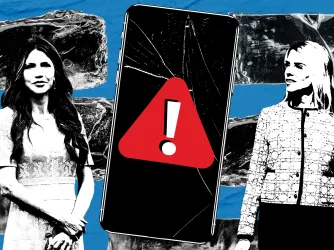
FIRE sues Bondi, Noem for censoring Facebook group and app reporting ICE activity
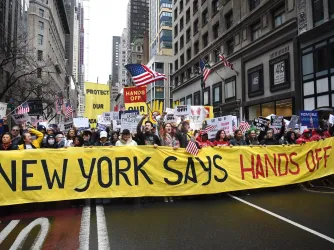
Deep dive into New York’s proposals to ban demonstrations near houses of worship
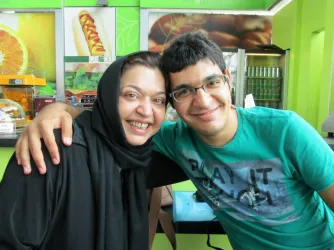
Iran replaced my mother’s voice with silence
